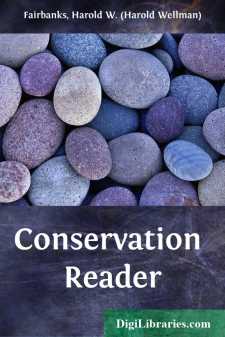Nature
Nature Books
Sort by:
CHAPTER I. The Appalling News. On the advent of Summer, June 1st, the country was horror-stricken by the announcement that a terrible calamity had overtaken the inhabitants of Johnstown, and the neighboring villages. Instantly the whole land was stirred by the startling news of this great disaster. Its appalling magnitude, its dreadful suddenness, its scenes of terror and agony, the fate of thousands...
more...
INTRODUCTION. There is no island in the world, Great Britain itself not excepted, that has attracted the attention of authors in so many distant ages and so many different countries as Ceylon. There is no nation in ancient or modern times possessed of a language and a literature, the writers of which have not at some time made it their theme. Its aspect, its religion, its antiquities, and productions,...
more...
by:
Various
CHAPTER I A. BACKGROUND After viewing the destruction wrought by the eruption of Mt. St. Helens in Washington State in May 1980, President Carter became concerned about the impacts of a similar event of low probability but high damage potential, namely a catastrophic earthquake in California, and the state of readiness to cope with the impacts of such an event. As a result of the President's...
more...
INTRODUCTION The wonderfully successful book, entitled "Black Beauty," came like a living voice out of the animal kingdom. But it spake for the horse, and made other books necessary; it led the way. After the ready welcome that it received, and the good it has accomplished and is doing, it follows naturally that some one should be inspired to write a book to interpret the life of a dog to the...
more...
SECTION I. In discussions of pathological conditions contributing to lameness in the horse, cause is generally classified under two heads—predisposing and exciting. It becomes necessary, however, to adopt a more general and comprehensive method of classification, herein, which will enable the reader to obtain a better conception of the subject and to more clearly associate the parts so grouped...
more...
THE KINGBIRD'S NEST. To study a nest is to make an acquaintance. However familiar the bird, unless the student has watched its ways during the only domestic period of its life,—nesting time,—he has still something to learn. In fact, he has almost everything to learn, for into those few weeks is crowded a whole lifetime of emotions and experiences which fully bring out the individuality of the...
more...
Preface. In the following pages I have endeavoured to give, in a series of picturesque sketches, a general view of the natural history as well as of the physical appearance of North and South America. I have first described the features of the country; then its vegetation; and next the wild men and the brute creatures which inhabit it. However, I have not been bound by any strict rule in that respect,...
more...
IV. APRIL—BUDS AND BIRD SONGS “Has she not shown us all? From the clear space of ether, to the small Breath of new buds unfolding? From the meaning Of Jove’s large eyebrow, to the tender greening Of April meadows?”“And whiles Zeus gives the sunshine, whiles the rain.”A strong southeast wind is blowing straight up the broad river, driving big undulations up the stream, counter to the current...
more...
CHAPTER ONE HOW OUR FIRST ANCESTORS LIVED Before these fields were shorn and tilledFull to the brim our rivers flowed;The melody of waters filledThe fresh and boundless woods;And torrents dashed, and rivulets play'd,The fountains spouted in the shade. William Cullen Bryant,quoted in American Forestry, XIV. 520 The earth is our home. It is a great treasure house filled with the most wonderful...
more...
L. L. LANGSTROTH'S MOVABLE COMB HIVE.Patented October 5, 1862. Each comb in this hive is attached to a separate, movable frame, and in less than five minutes they may all be taken out, without cutting or injuring them, or at all enraging the bees. Weak stocks may be quickly strengthened by helping them to honey and maturing brood from stronger ones; queenless colonies may be rescued from certain...
more...











